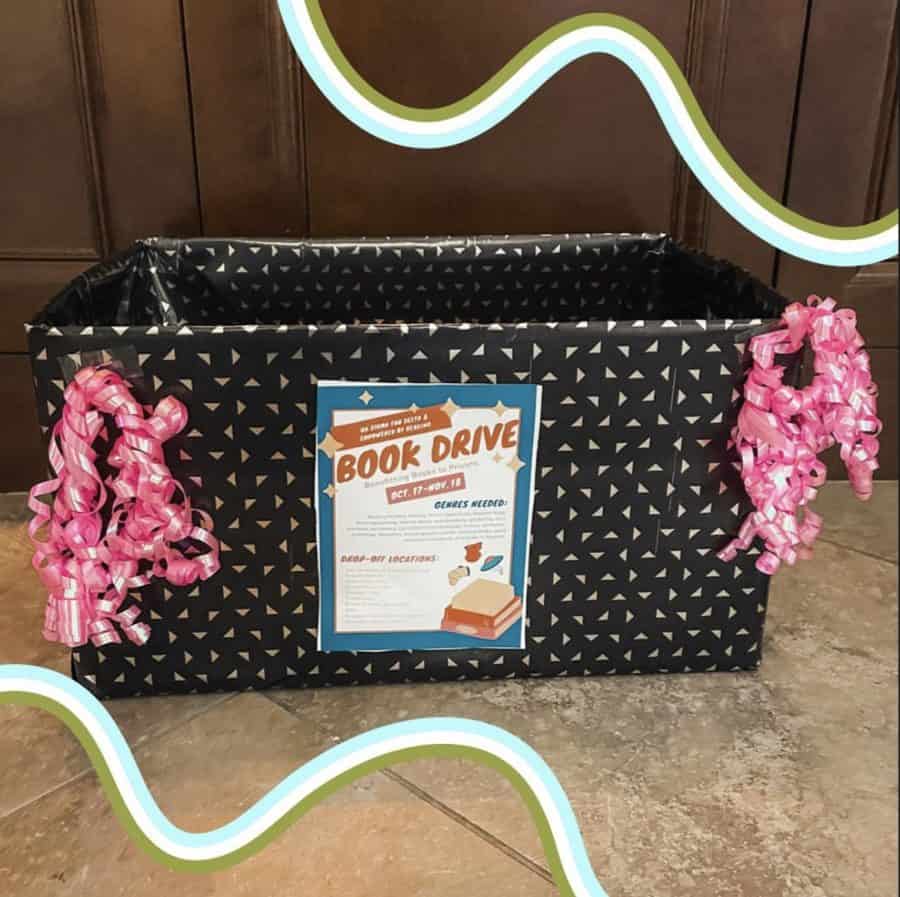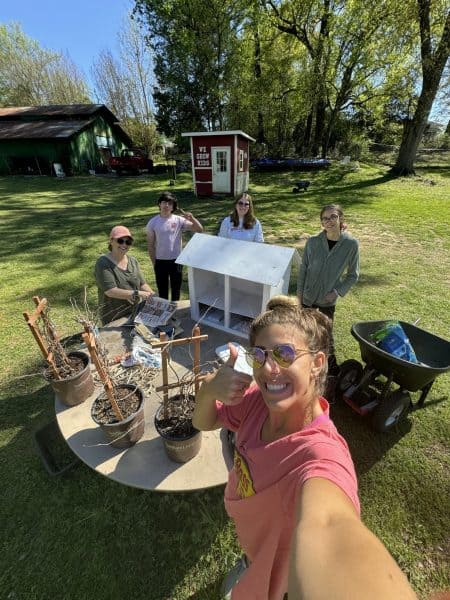Books to Prisons hosts book donation drive
November 6, 2022
At the Canterbury United Methodist Church in Birmingham, Alabama, there is a small library overflowing with books of different genres donated from across the state. These books will not stay for long – each month, 600 of them are mailed with a letter to incarcerated individuals in Alabama and Texas.
Books to Prisons, the organization that facilitates these donations, is hosting a book drive through Nov. 18 at The University of Alabama in collaboration with the English honor society Sigma Tau Delta and Empowered by Reading, a University of Alabama student’s initiative to promote literacy in Alabama.
Donation boxes around campus are encouraging students, faculty and community members to donate gently used or new books. The drive’s monthly goal is to collect 300 books. As of Oct. 27, the drive was more than halfway past their goal at 180 books received.
“I think it is so important that prisons are treated as rehabilitation and reform, not just throwing someone away and locking the key,” said Jolie Money, founder of Empowered By Reading and a senior majoring in English. “Those people are usually failed in our education, so this is another way we can ensure that when they are released, they have a solid background in education.”
According to an article by Book Riot, prison libraries tend to be understocked and inaccessible to inmates, and libraries give incarcerated individuals entertainment and access to education.
Although prisons have books available for incarcerated individuals, a study conducted by the University of Texas Medical Branch at Galveston in 2000 found that approximately 80% of Texas prison inmates were considered functionally illiterate. Books to Prisons aims to increase this literacy rate.
Books to Prisons was originally located in Tuscaloosa for 13 years before moving to their Birmingham location due to a lack of available space in Tuscaloosa. Incarcerated individuals write letters to them asking for particular books or book genres that they would like. Volunteers read each letter, select three to four books that fit the letter’s description and write a letter back to the sender.
“We have just seen so much gratitude from the incarcerated when they mail us back and what it does for them,” said Head Volunteer of Books to Prisons Shannon Wadlington. “We are not judging them. We are showing them respect and that there are people on the outside that do care about them.”
People can volunteer directly with Books to Prisons and help sort letters, buy books and select books for each incarcerated individual. Volunteers must complete a 30-minute training session before volunteering.
Alexis Covington, a master’s student in political science, recently started volunteering with Books to Prisons. In addition to helping sort books, she translates letters written in Spanish to pick out books that fit the sender’s requests.
“I think that Books to Prisons is a very real and present way to directly help people who are disconnected from the outside world, and it’s extremely rewarding,” Covington said. “Incarceration is an issue extremely important to me, and I hope that by volunteering I can bring a bit of kindness to people who have been told they don’t deserve any at all.”
Last November, the University’s College of Communication and Information Sciences selected Books to Prisons for student-run public relations firm Capstone Agency’s CreateAthon, which is a 24-hour period where students do free public relations work for nonprofits. The college helped Books to Prisons increase their digital presence by running a three-month social media campaign and building a personal website. Their website and social media are still active with updates on the nonprofit.
Books to Prisons encourages people to donate paperback mystery thrillers, dictionaries, horror novels specifically by Stephen King, manga, vocational how-tos, conspiracy theory stories and any books written in Spanish. They prefer to have many different books to ensure they can provide each letter sender with books fit for their preferences.
Donation boxes are on The University of Alabama’s campus in the English Building, Reese Phifer Hall, Autherine Lucy Hall and the UA Student Center. People can also drop off books at Ernest & Hadley Booksellers in Tuscaloosa or donate monetarily to Books to Prisons on their website.











